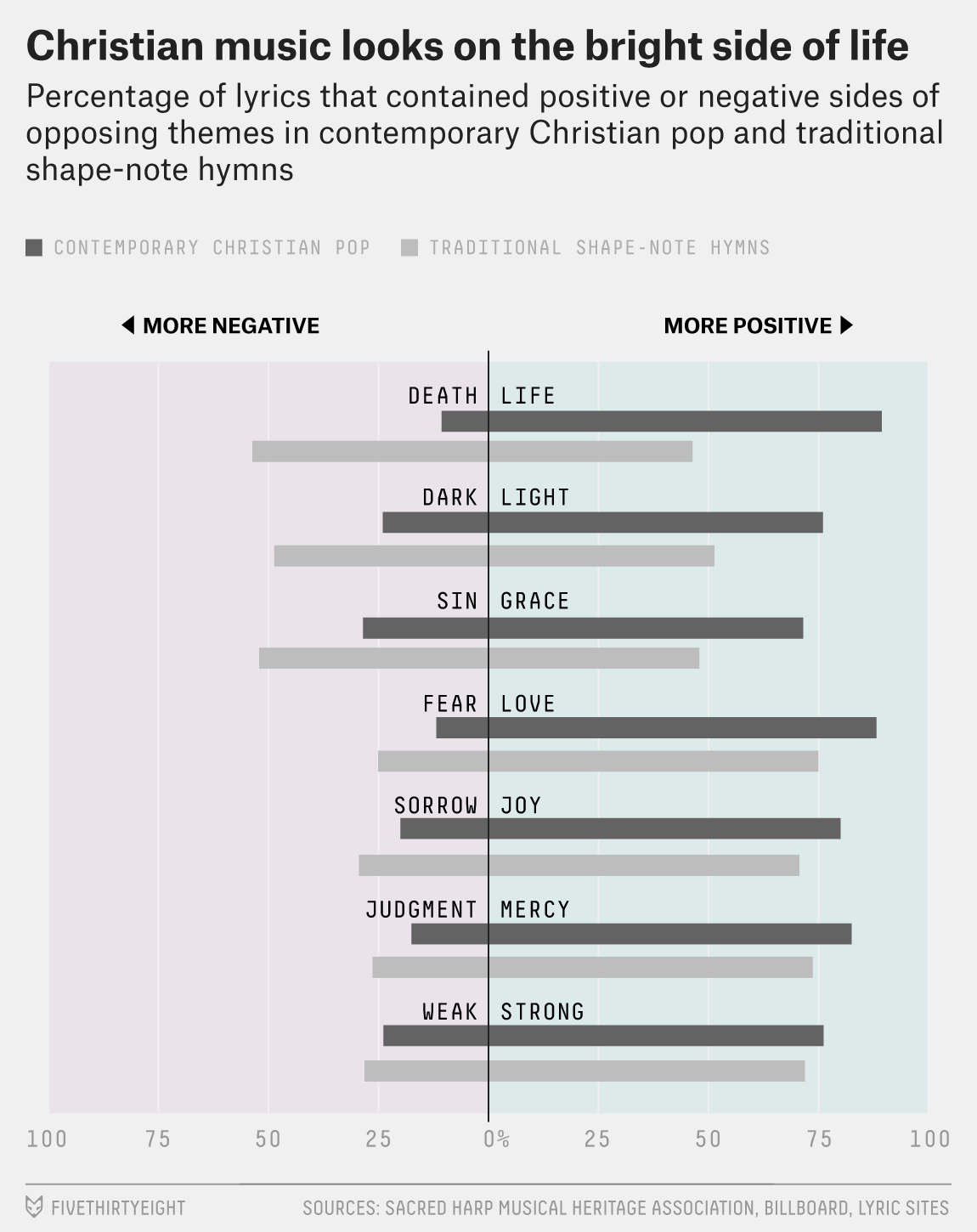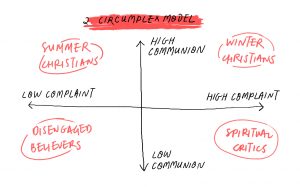Happy praise anthems dominate the repertoires of churches worldwide, usually the first song in a worship set. Take these lines written by acclaimed Christian singer-songwriter Chris Tomlin:
Well I could sing unending songs
Of how you saved my soul
And I could dance a thousand miles
Because of your great love
That’s all fine … except on the days “joy” eludes you.
When having to mouth the words feels like you’re wringing your spirit for every last drop of faith. There is no joy – only darkness, disappointment and hypocrisy. We’ve all been there, some more often than others.
You could say that song captures just one aspect of Chris’ faith and ought to be considered in context of his wider nuanced experience of faith (i.e. the whole album). Sure – but judging by the songs we choose to sing, most Christians just aren’t doing it.
Compare our happy repertoires to the hymns of old and you’d notice the gradual transition from Kingdom to self, scripture to feeling, and sorrow to happiness.
One study successfully quantified the transition by comparing the positive-negative proportion of lyrics between old and new songs. The old hymns were pretty balanced, but modern chart toppers are pretty much pure sunshine.

Believers of every epoch will express their faith in cultural vernacular. But this isn’t just about staying relevant. Instead, it reflects and propagates the simplistic notion that the faithful are invariably joyful.
TWO WAYS TO VIEW THE CHRISTIAN COMPLAINANT
There are good complaints and bad complaints to God.
The “good” complaint accepts that God is in control, even if we’re not able to see exactly how He’s working in the situation/season. Faith is the act of abiding in Him, in the assurance of what we do not see.
In this posture, the question “God, how could you let this happen?” is the most desperate rendering of the man in full surrender, the recognition of who really is in control.
The “bad” complaint moans and despairs without bringing the circumstance or emotion back to God; in swearing at the unspeaking skies, or in the curmudgeonly fault-finding of daily living, the calloused spirit denies the sovereignty of God.
There is a place to deal with bad complaints. In ministry to the hurt, in gentle instruction and rebuke to the ungentle in spirit.
But in this article, we’re focused on good complaints toward God, “involving experiences of lament, protest, disappointment, frustration, anger, and doubt toward/about God”.
Some subscribe to the prevalent model that complaint and faith are polar opposites, mutually exclusive.
In this perspective, faith and complaint levels are inversely related, with the increase in one directly necessitating the decrease in the other. To spur faith, therefore, is to minimise complaint.

But this polar model falls short on several fronts.
It’s unscriptural. From the cries of King Jehoshaphat in 2 Chronicles 20:12, to Job 3:11, to Habbakuk 3:16, we read of faithful characters going through real pain and distress. The Lamentations was written for a broken Jewish people under Babylonian rule.
About a third of the Psalms are blatant complaints – some sound quite petty and vengeful. Jesus Himself lamented, especially in the days leading up to His crucifixion (Mark 14:36).
It also betrays our experience. If the complainant is viewed as unfaithful, the act of complaint becomes diseased and taboo.
The fact is bad things happen to all people – good and bad – all the time. If Jesus Himself lamented under the weight of His call, we should expect the same from people who draw close to Him.
Ironically, should the average churchgoer experience similar things, he’d find reason to doubt his faith: God’s losing control. I’m not praying enough. I’m being punished. The church floats in a bubble while the world reminds him of his foolishness.
Brokenness is held at arm’s length. Through a tacit adoption of the polar model, broken and hurting Christians distance themselves from God and the church community.
The weight of Scripture suggests that high levels of complaint can coexist with high levels of communion.
Complaint no longer indicates unbelief, but becomes a regular, healthy feature of authentic faith – not blind, and possibly very bold. This is the biblical model that acknowledges distress while encouraging the pursuit of God.

In this circumplex model described by author Richard Beck, the degree of complaint is independent of engagement with God; complaint and communion occupy separate axes altogether.
Contrary to popular opinion, following Jesus isn’t a ticket to a prosperous, healthy and painless life. Pain is an insufficient reason to ditch your faith; neither is joy a reason to be faithful – a difficult truth to live with, but truth nonetheless.
For some, failure to lament might be the greatest symptom of faithlessness, because in our despair we stop believing that God cares or even exists.
Real followers of Jesus acknowledge suffering and death as consequences of man’s free will.
Lament allows us to express our ugliest, most destructive emotions uncensored before God who knows our entire being intimately. Cry, scream, and lament if you must.
Based on this understanding, we accept that God is often silent on the issues most painful to us. God might hear all prayers, but not all are answered. It’s not unscriptural to feel forsaken by God (Matthew 27:46), to doubt. It’s understandable to desire vengeance on our enemies (Psalm 137:9).
Lament allows us to express our ugliest, most destructive emotions uncensored before God who knows our entire being intimately, so we don’t go on a destructive rampage or completely isolate ourselves. Cry, scream, and lament if you must.
So the rains fall again on the arid plains of our hearts, and cups overflow once again.
We could plunge into the whole theology of suffering (so important), but the first step is changing culture. It’s going to take a lot of work. We must build an authentic church family deeply connected with the disorientated world outside, and not overly focused on how blessed we are within our four “safe” walls.
Lest our communities also become whitewashed tombs.
Enough of the wishful optimism or false hope that numbs us from the real brokenness and confusion, or somehow assumes we’ve got a free pass to heaven. Don’t buy that prosperity gospel.
We must be desperate and hungry. We must thirst for the living water again and invite our fellow traveller to come and see (John 1:39). But all this can only happen when we lay our tears, anger, frustration, doubt and despair at His feet.
This is the hope so many desperately need. Our communities must encourage that.
Our faith could be full of cheer or drenched in tears, but only when God is allowed full communion with us can transformation truly begin. His love doesn’t just acknowledge, but overwhelms our pain. I pray you’ll have the courage to step into His love just as you are.
It’s simpler said than done, of course. But you could start with your Spotify playlist.









